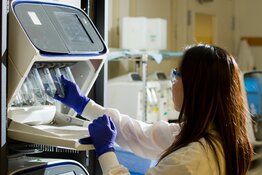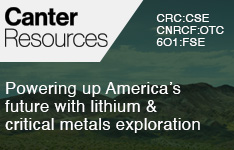Playing the Immune System for Profit
Source: George S. Mack, The Life Sciences Report (4/12/12)
I had an opportunity to pose some questions once again to Stephen Dunn who is president and senior managing director of research at LifeTech Capital, a division of Aurora Capital, which has a presence in growth hotbeds India and China. LifeTech is one of those boutique investment banks that researches small-cap stocks that need capital and attention. The firm specializes in biotech and medtech, and it really does get an opportunity to get inside little companies to know the people and to understand the science. Dunn gets to do things that he wouldn't get to do in a bulge-bracket banking environment, and after 25 years in his industry he has done nearly everything, including negotiations for intellectual property agreements to product deals, venture capital and mergers and acquisitions. . .
I needed a bit of perspective because the economics appear to be tough. The macro picture looks like this: About 12 million (M) people per year die from infectious disease, according to the World Health Organization (WHO). Nobody believes that number. Actual mortality rates have to be greater, but unreported. But about 1 billion (B) people each year contract some infectious disease that is non-fatal. That number has to be low as well. I must have had two common cold episodes last year just myself. But you get the picture. Dunn has some numbers ready for my questions on market size. "While difficult to calculate precisely in dollar terms, the global vaccine market is roughly $30B or more, with the U.S. representing $20B or more," he says. "We expect this to grow significantly as there are over 300 infectious diseases, and only about 15% of them have an effective prophylactic therapy."
Margins for basic or routine immunizations are expected to be around 5%, "Which investors should treat more like an annuity than a growth vehicle," says Dunn. "However, vaccines in new indications, especially those in highly contagious or fatal indications, can command significantly higher margins and represent significant investment opportunities." He points to a couple of newer examples that include Merck & Co. Inc.'s (MRK:NYSE) Gardasil [human papillomavirus quadrivalent (Types 6, 11, 16, and 18)] and GlaxoSmithKline's (GSK:NYSE) Cervarix [human papillomavirus bivalent (Types 16 and 18)], which are both preventive vaccines for human papillomavirus (HPV), the causal agent of cervical cancer. "These have solid profit margins," he says.
The conversation turns to Provenge, which is an autologous (patient's own tissue or cells) therapy where the patient's immune cells are expanded in numbers and given back as a therapy. I point to the product's shortcomings, specifically the fact that uptake has been disappointing. Dendreon's Q411 revealed $77M in Provenge sales with a 26% gross margin. "While this looks like a high margin compared to prophylactic vaccines, it is not enough for a therapeutic vaccine," says Dunn. "The patient volume is much lower, with only 250K prostate cancer patients who can be treated versus many millions of people receiving prophylactic vaccines." I wonder if an allogeneic (tissue or cells not of same patient origin) model could be developed, and of course I know the problems with that are monumental, but scale is the problem Dendreon is struggling with right now. "Provenge is patient-specific and must be custom manufactured, so the cost of production, requiring multiple production centers, is significant," says Dunn. "The limitations are certainly a concern for patient-specific vaccines, but there are alternative vaccine approaches for investors."
Dunn believes all therapeutic vaccine wannabes are taking in the lesson of Dendreon's first generation clunker, and he says, "A number of new, competing therapeutic options are half the cost. Overall, pricing is always a function of benefit versus alternative therapies, the same as for any drug." He describes Provenge's efficacy as "modest," but Bristol-Myers Squibb Co.'s (BMY:NYSE) price tag of $120K/year-monoclonal antibody Yervoy (ipilimumab) for melanoma is "not out of line" because these patients have few other options. "In addition, this is an 'off-the-shelf' therapeutic, meaning it does not require custom manufacturing for each patient, and the gross margins are significantly higher."
He also talks about DNA vaccines where "off-the-shelf" products can be produced cheaper and faster. Although no therapeutic DNA vaccine has yet been approved, Vical (VICL:NASDAQ) currently has several clinical trials in progress.
I ask Dunn about the importance of adjuvants which enhance the immune system and make vaccines more powerful. He makes it crystal clear: "Competing immunotherapies tend to converge on the same antigens in a specific indication, so the differentiator may lie with the adjuvant," he says. "Some research has shown that adjuvants may even be more important than the antigen, resulting in them being called 'immunology's dirty little secret.' In fact," he says, "Some suggest that Dendreon's Provenge results may not have been a result of the prostate antigen but rather the adjuvant, because it used a placebo control arm."
I love the idea of playing adjuvants because the business model could become a royalty machine with revenue going from top line to bottom relatively untouched. I'm going to find a way.
DISCLOSURE:
1) George S. Mack of The Life Sciences Report personally and/or his family own shares of the following companies mentioned in this interview: None.



































